- Category
- Perspectives
Why Ukraine Must Become Part of Europe, According to Nobel Laureate James Robinson
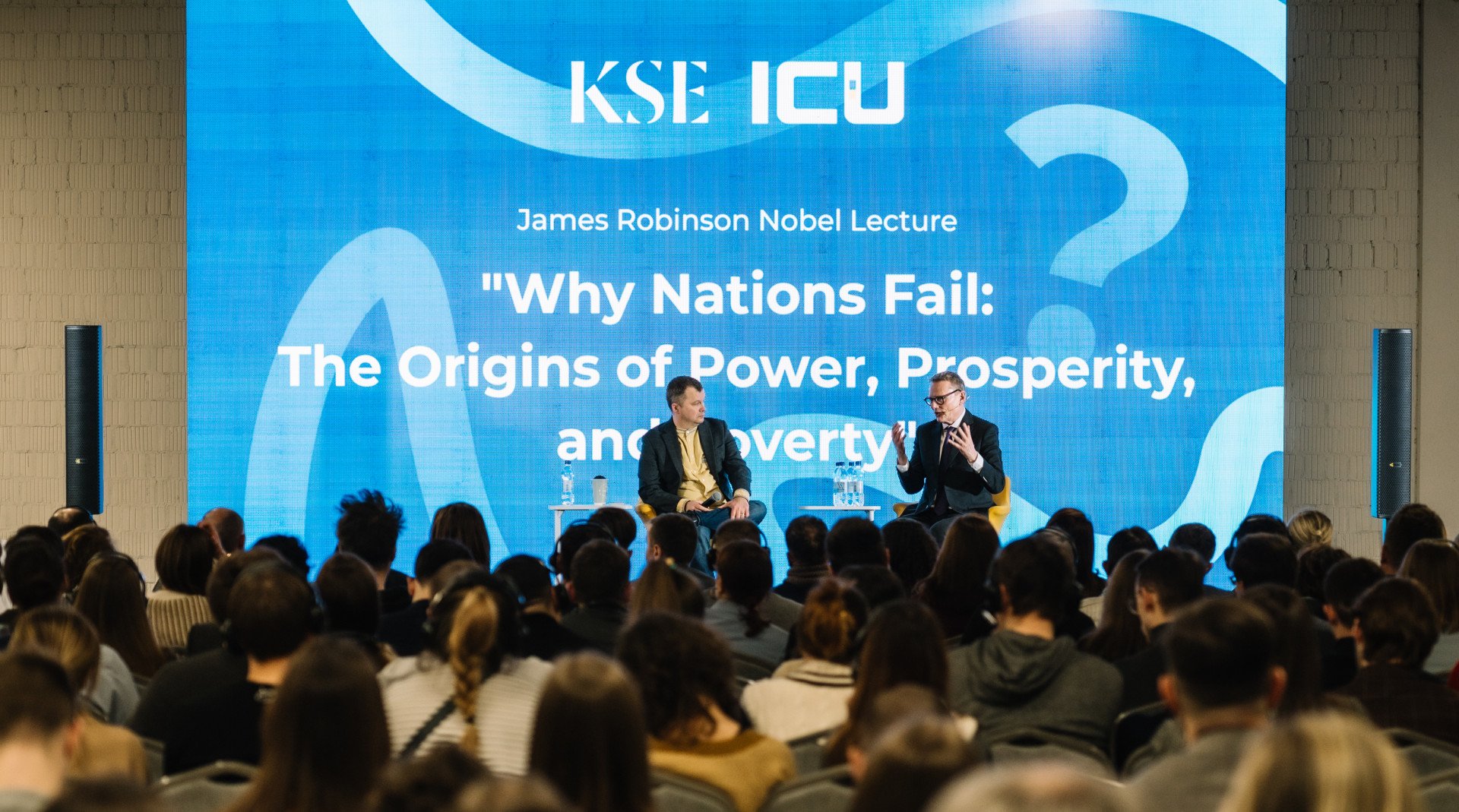
Nobel Prize-winning economist James Robinson visited Kyiv in March for his first trip as a laureate. Invited by Investment group ICU and the Kyiv School of Economics (KSE), Robinson delivered several lectures, sharing his insights on Ukraine’s journey toward Europe and its crucial role in the global landscape.
James Robinson, a UK economist, is globally renowned for his best-selling book Why Nations Fail: The Origins of Power, Prosperity, and Poverty. In short, the book argues that strong political and economic institutions are crucial for a nation’s success—though, of course, it’s worth reading in full.
Published in 2012, Why Nations Fail quickly gained worldwide popularity for its insights. The Ukrainian edition was released in 2016 with support from the Investment group ICU. Today, ICU is a donor to the UNITED24 fundraising platform, which helps fund the operational activities of its team.
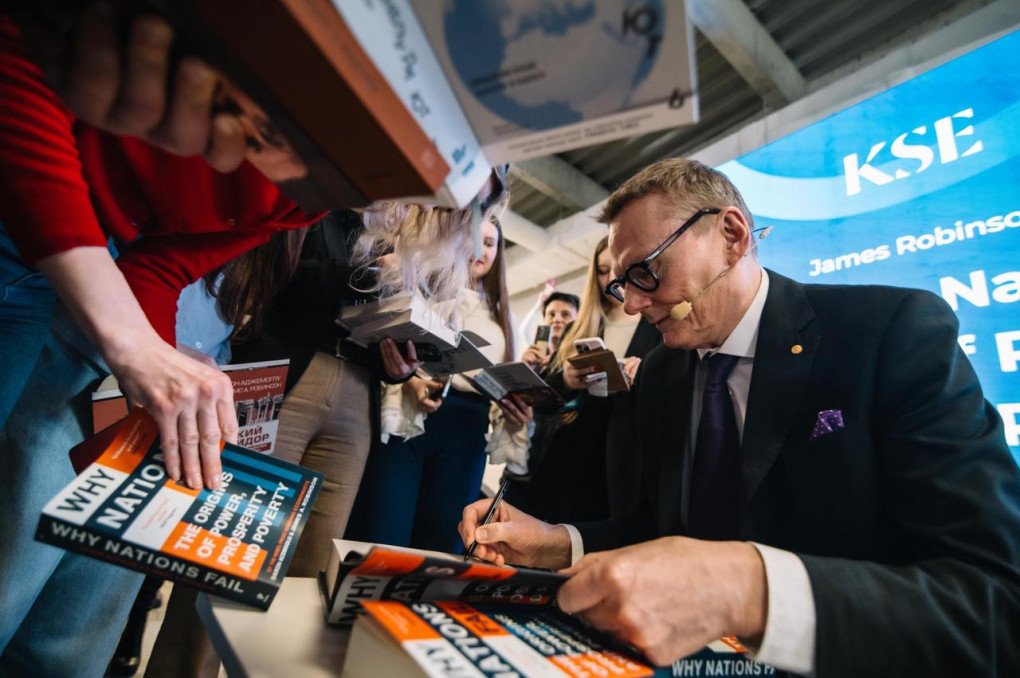
Robinson first visited Ukraine in 2018 at the invitation of the KSE and ICU. Seven years later, now a Nobel laureate in economics, he returned, once again accepting their invitation. During his multi-day visit, Robinson gave a public lecture, met with journalists and business and political leaders, taught students, and spent time in Kyiv.
We compiled some of his most thought-provoking remarks from these discussions.
On Ukraine’s path to Europe
“You see the progress,” he said. “Last time I was in Ukraine, which was seven years ago, before the war started, everyone was talking about progress in different dimensions.”
Robinson wanted to better understand what was happening, noting that it took Ukraine more that 30 years "to decompress and exit from the legacy of the Soviet period.”
“Ukraine was on the right track,” he says. “It takes time for the things to coagulate and come together. But you see the progress.”
However, due to Russia’s war in Ukraine, many of these transformations have been put on hold as the country fights for its freedom and sovereignty, he added. Yet Robinson is convinced that once the war ends, Ukraine will undergo even more dramatic changes—because everyone understands that maintaining sovereignty and independence is paramount.
It is also crucial for Ukraine to think globally, he says, stressing that Ukraine belongs in Europe and must move closer to it as quickly as possible.
“You have sensible friends in England and France and Germany and many other places,” he said. “There's a solidarity that can help. And there's an urgency to do something for sure.”
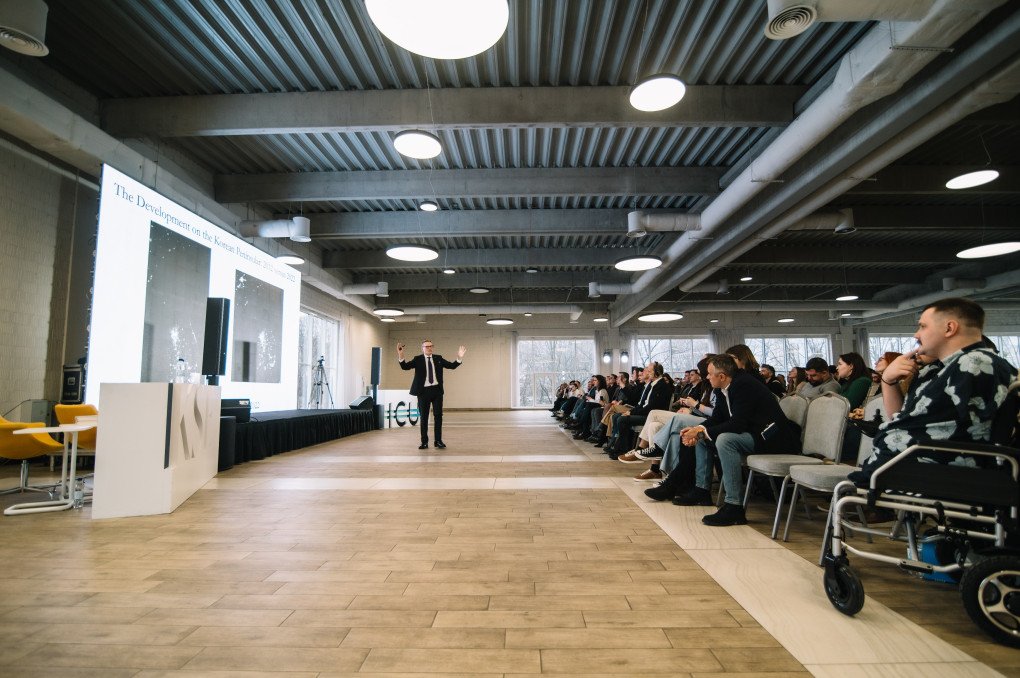
Russia’s full-scale invasion made it clear that there was only one future for an independent Ukraine.
Robinson mentioned discussing this with students in the context of academic and scientific progress: for academia to thrive, Ukraine must be placed in a global context. People must think beyond national borders and be ambitious.
On building institutions
“International relations play a big role at some moment in world history,” says Robinson. Ukraine aspires to be a prosperous nation, and if to look at world history, it is clear that it took countries like the US and the UK hundreds of years to get there.
it is clear that it took countries like the US and the UK hundreds of years to get there.
“When peace comes, that's something that you can leverage to get the economy moving, to find sectors of the economy that will be dynamic,” said Robinson.
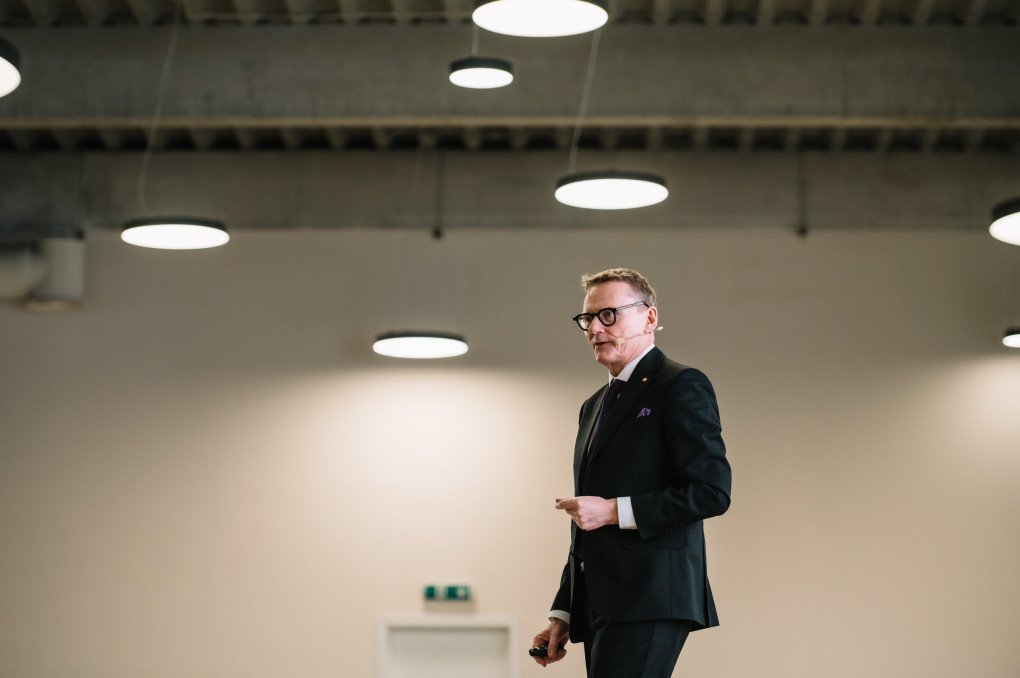
Planning for the future must begin today, setting new priorities because peace will bring new challenges. Peace will come with many demands, and Ukraine must anticipate them and be able to say, “No, we won’t do this because it threatens what we aim to achieve.” This requires a strategy—and it must be developed now, in parallel with the war effort.
On Finland as a model
During a closed discussion with Ukrainian journalists—including representatives from UNITED24 Media—we talked about countries Ukraine could look to for inspiration in institution-building under difficult conditions. Robinson admitted that he is not an expert on this region, as his work focuses more on Africa and Latin America. However, he did offer a few examples.
“It is a little bit comparable to Finland,” he said. “In the 1930s, Finland exported timber. It was not a rich, sophisticated, modern economy.”
After World War II, Finland had to pay the Soviet Union reparations amounting to 4% of its GDP for ten years. They were sending huge sums of money to Moscow just to settle their debts, creating an incredibly challenging economic situation for decades. And yet, what happened next?
“Finland modernized and built institutions in a kind of extraordinary way,” he said. Despite reparations, territorial losses, and Stalin’s threats, Finland made an extraordinary leap forward. Robinson asks: why not use Finland as a model?
“I understand that right now, Ukraine’s priority is Russia’s invasion,” he says. “I worked a lot in Colombia for 33 years.”
For a long time, the only priority there was the civil war. The Colombian president at the time, Alvaro Uribe, was fighting against Marxist guerrilla groups and made it clear that there was no time for anything else.
“He had one thing he cared about, which was fighting the civil war,” said Robinson. “He had to be single-minded to do this. You have to be single-minded too. But when the war stops, the peace agreement will hopefully create a possibility for moving on to a very different path.”
How do you break free from the dominance of a powerful neighbor and build strong national institutions?
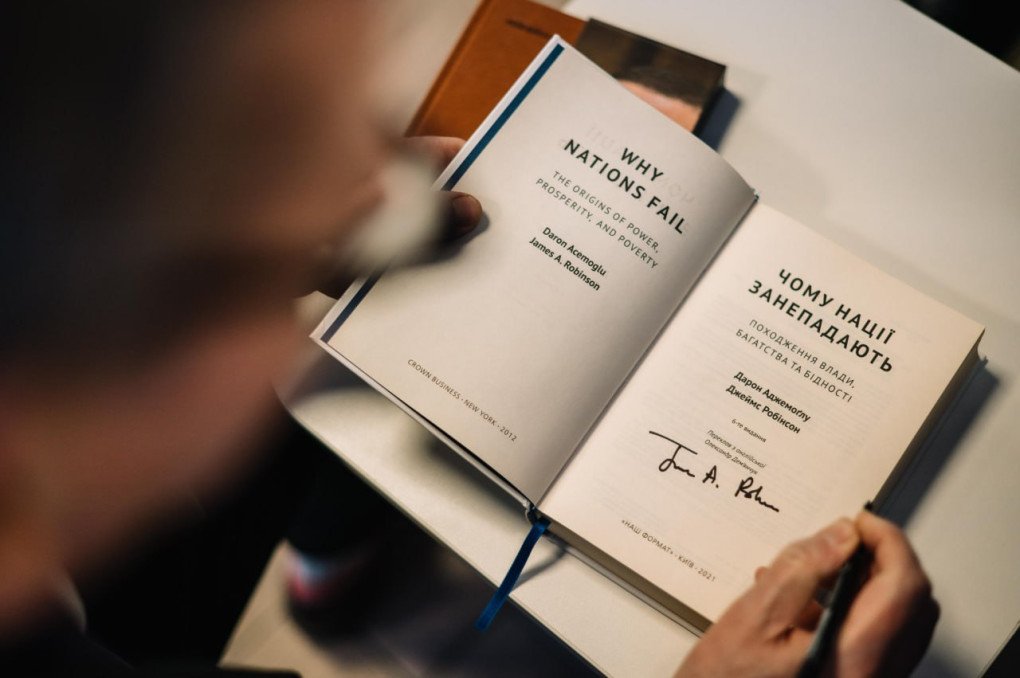
“After the collapse of the Soviet Union, the European Union played a pivotal role in helping build institutions in Eastern Europe and the Baltic states,” Robinson said, adding that people often say Western democracies should help—and they do.
“But really successful political institutions come from within,” he said. “They have to be legitimate. It has to be the society itself that builds them. Otherwise, you just don’t feel a stake in them.”
Robinson gave an example of how the US has provided support to both South Korea and Egypt.
“Look at the progress in South Korea,” he said, highlighting its military advancements. “US gives enormous amounts of money to Egypt. Where's the Egyptian boom?”
Robinson believes the demand for change must come from within society. When it does, everything else will fall into place.
Robinson’s visit to Ukraine was made possible with the support of ICU and KSE. Investment group ICU is a donor to the UNITED24 fundraising platform, which supports the team’s operations and has raised nearly $1,4 billion for Ukraine.

-29a1a43aba23f9bb779a1ac8b98d2121.jpeg)

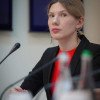
-588ae190d45987800620301cc34e2cf8.png)

-886b3bf9b784dd9e80ce2881d3289ad8.png)

-c42261175cd1ec4a358bec039722d44f.jpg)
-46f6afa2f66d31ff3df8ea1a8f5524ec.jpg)